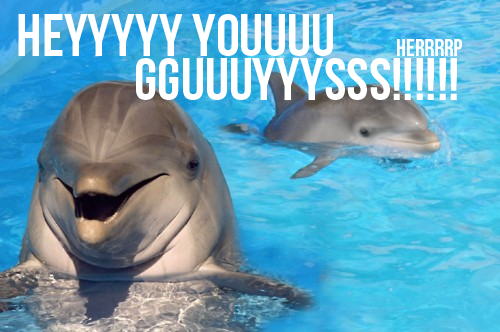Study shows how animals invented social networking

You'd be correct in thinking that conventional thinking of the moment is the likes of Facebook, Twitter and Google+ were human creations. However, a recent 10-year study into how animals behave has claimed otherwise, showing that social networking operates in the same fashion across all species.
Conducted by Dr David Lusseau, of the University of Aberdeen's School of Biological Sciences, the research found that the culture of sharing information throughout social spectrums like the aforementioned networking sites mimic what animals have always used to gather information via their own respective social graphs. Cliques were formed in the animal kingdom, with information being shared and gathered to help make group decisions that benefit every individual animal within the group.
This behaviour has been likened to how humans use social media. Of course the information differs (e.g animals will share where predators are, whereas humans will discuss where their next booze-up is to take place); but the idea of one being dictating the topic of conversation and seeing those in their social group discuss it is evident within the animal kingdom.
"Social networks are the same across all species and, whilst details of their structure may differ, some properties remain the same whether we are looking at killer whales, spider monkeys or, indeed, humans." Dr David Lusseau commented. "Our studies into animal populations showed the 'small world effect' is prevalent in the animal kingdom. Also, we see cliques form in different species of animals in the same way as we ourselves experience in our day-to-day lives."
His research also discovered that animals are also linked via a shared set of connections, comparable to the six degrees of separation (even though we're connected by even less now). Lusseau will be presenting all his findings next Wednesday in Aberdeen in a talk called, “Did Animals Invent Twitter?”
It's certainly an interesting conclusion, one that you can't help but ponder about and question.
Source: Press Association

